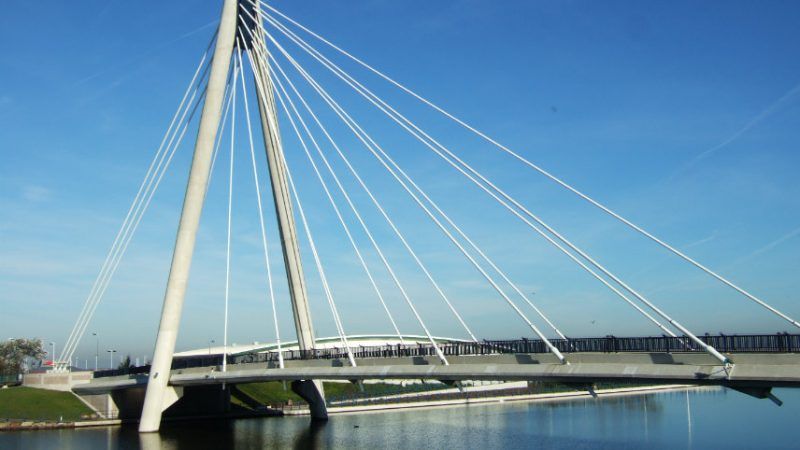Los Angeles is Spending $16 Million on a Bridge That Was Supposed to be Free
The Atwater Bridge was supposed to be a free gift to the city from a philanthropic investor.

If you think the Los Angeles city government can manage your tax dollars wisely, I have a bridge to give you.
Last month, the city agreed to move ahead with funding a $16.2 million equestrian bridge. It was originally supposed to cost less than $4 million, and a private donation was supposed to cover the whole thing.
"Here we are, at this 11th hour, with a $16.12 million bridge that the community didn't really ask for," City Councilman Mitch O'Farrell said at a May hearing on the project, shortly before voting to fund it.
The bridge will connect horse stables in North Atwater on the eastern bank of the Los Angeles River to a trail system in Griffith Park on the opposite side. Right now, horses and riders have to wade across the river.
The project got its start in 2010, when real estate developer Morton La Kretz offered to pay for it. He estimated the bridge would cost around $3.67 million. The City Council graciously accepted La Kretz's offer the following year.
After that, the city's free lunch quickly morphed into an increasingly expensive white elephant.
In 2013 the city had to fork over $270,000 to River LA, the nonprofit managing La Kretz's donation, to calculate the project's engineering and design costs. The results must have been higher than La Kretz thought, because River LA was soon applying for millions in state-level grants to make the project pencil out. In 2014, it managed to get provisional approval from California's Active Transportation Program (ATP) for a $3.6 million grant. A year later, that money was put in jeopardy after River LA failed the requisite audits required to receive grant money from the state.
The Los Angeles City Council, fearful of losing those ATP dollars and of seeing the Atwater bridge die, agreed to step in, and in August 2016 it took over the management of what had become a $13 million project. That move secured the ATP grant, but even with that money the Atwater bridge was still nowhere near paid for: The Los Angeles Board of Engineering estimated that the project needed another $7.8 million in public funding.
Hoping to contain costs, the City Council had the Board of Engineering redesign the bridge to be a cheaper prefabricated structure rather than a steel cable bridge. That would have cost only $11 million. But La Kretz wasn't interested in funding a scaled-down version of the project, and those all-important ATP funds were on the verge of expiring, so in late May the City Council voted to go ahead and fund the now $16 million bridge, borrowing $6 million from the Public Works Trust Fund to close the fiscal gap.
Why did the costs increase so much from the initial estimates? Public Works Project Division Manager Shirley Lau points to safety measures, regulatory review costs, and rising construction prices in the L.A. market. Even when people try to give the government something for free, it ends up costing taxpayers millions.
Rent Free is a weekly newsletter from Christian Britschgi on urbanism and the fight for less regulation, more housing, more property rights, and more freedom in America's cities.


Show Comments (55)